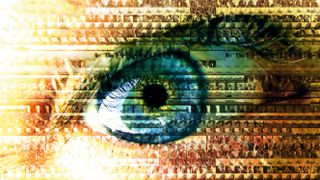'Dark Web' fuelling criminal 'malware industry'
McAfee Labs points to so-called 'deep web' as culprit

McAfee Labs has released its threat report for 2013, pointing towards the role of a 'malware industry' in the so-called 'Dark Web' - untraceable areas of the internet used to host criminal activity - as key in the amount of high-profile data breaches last year.
According to the report, recent attacks on companies like US retailer Target have been linked to unsophisticated "off the shelf" malware bought through underground dark web markets. A Cybercime-as-a-Service community hidden in the deep web is responsible, says McAfee, which can create specialised kits for each attack.
The number of attempted credit data sales skyrocketed in late 2013 with a reported 40 million card numbers on sale, supposedly stolen in 'small' batches of 1 to 4 million. The number of maliciously signed binaries tripled in McAfee's database by the end of 2013, with the security firm finding more than 2.3 million new malicious applications.
Malweary
As for those responsible for the increase, McAfee points the finger at dubious websites and companies that allow users to upload files or URLs that link to applications and 'wrap' them in a signed installer. This tricks those that download them into believing they are using safe programs.
McAfee issued a further warning to users and administrators, stating that the growing number of maliciously signed files indicates that the threat will be very real to businesses of any size. With three new threat types appearing every second, companies should be extra vigilant.
"The fourth quarter of 2013 will be remembered as the period when cybercrime became 'real' for more people than ever before," said Vincent Weafer, senior vice president for McAfee Labs. "For security practitioners, the 'off the shelf' genesis of some of these crime campaigns, the scale of operations, and the ease of digitally monetizing stolen customer data all represent a coming of age for both Cybercrime-as-a-Service and the 'dark web' overall."
Are you a pro? Subscribe to our newsletter
Sign up to the TechRadar Pro newsletter to get all the top news, opinion, features and guidance your business needs to succeed!
Most Popular



